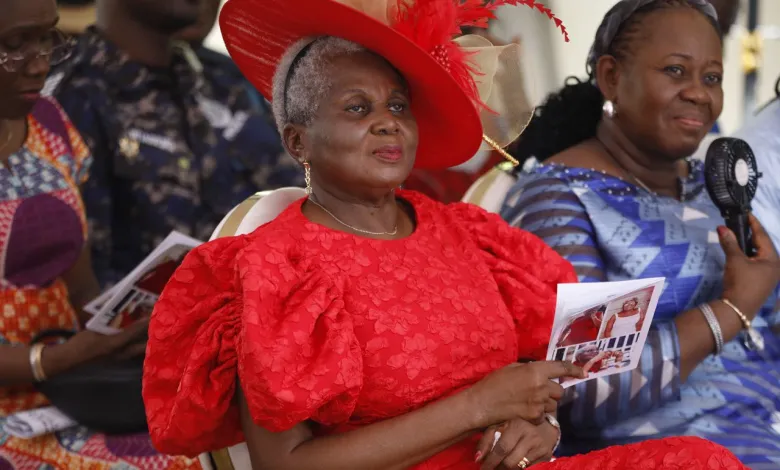Elizabeth Ohene, a veteran journalist and former member of Ghana’s Judicial Council, has launched a scathing indictment of the removal of Chief Justice Gertrude Araba Esaaba Sackey Torkornoo, arguing that the decision represents a grave misstep with potentially devastating consequences for Ghana’s democratic framework. Ohene contends that the dismissal, ostensibly based on an audit finding related to airline ticket purchases and a petition alleging capricious behavior, is a thinly veiled political maneuver that undermines the judiciary’s independence and sets a dangerous precedent.
Central to Ohene’s critique is the perceived disproportionality of the response to the alleged infractions. She questions how an issue of airline tickets, particularly given established procedures and precedents within the judiciary regarding travel entitlements, could escalate to the removal of a Chief Justice. Ohene’s experience on the Judicial Council informs her skepticism, as she recalls detailed discussions and established policies regarding judges’ conditions of service, including travel arrangements. She posits that a Chief Justice operating within this framework would have been duly informed of any irregularities and would unlikely have disregarded established protocols. This raises suspicions about the true motivations behind the removal, suggesting a potential misuse of bureaucratic processes for political ends.
Furthermore, Ohene dissects the petition that purportedly triggered the Chief Justice’s removal, highlighting its inherent weaknesses and raising concerns about its legitimacy as a basis for such drastic action. She points out that many of the issues listed in the petition had already been thoroughly addressed by the Judicial Council, casting doubt on their relevance as evidence of misconduct or bias on the part of the Chief Justice. Specifically, she questions the inclusion of complaints concerning the appointment of lawyers and judges as Court Registrars, arguing that such matters fall within the purview of the Chief Justice’s administrative duties and do not constitute grounds for removal. This raises concerns about the selective use of information and the potential manipulation of administrative procedures to achieve a predetermined outcome.
Ohene further underscores the double standard applied to the judiciary compared to the executive and legislative branches of government. She argues that similar audit findings would never be leveraged against the President or the Speaker of Parliament, highlighting the disparity in treatment and the apparent disregard for the principle of separation of powers. This differential treatment, according to Ohene, reveals a deeper malaise within the Ghanaian political system, where the judiciary is seemingly held to a different, and arguably unfair, standard of accountability. This undermines the notion of co-equal branches of government and erodes the judiciary’s ability to function as an independent check on executive and legislative power.
Beyond the specifics of Chief Justice Torkornoo’s case, Ohene warns of the broader implications for Ghana’s democratic institutions. She argues that the removal of a Chief Justice based on such flimsy grounds sets a dangerous precedent, eroding the judiciary’s independence and creating an environment of fear and uncertainty within the judicial system. This, in turn, can discourage judges from acting impartially and upholding the rule of law, potentially jeopardizing the fairness and integrity of the judicial process. The long-term consequences, she warns, could include a weakening of the judiciary’s ability to protect individual rights and hold other branches of government accountable.
Ohene’s decision to speak out, despite the traditionally confidential nature of Judicial Council proceedings, underscores the gravity of the situation. She acknowledges the extraordinary nature of her public intervention, justifying it by the unprecedented circumstances surrounding the Chief Justice’s removal. By breaking her silence, Ohene seeks to raise public awareness about the potential damage to Ghana’s democratic foundations and to call for greater scrutiny of the processes and motivations behind this controversial decision. Her willingness to speak truth to power, even at potential personal risk, demonstrates her commitment to upholding the principles of judicial independence and the rule of law in Ghana. She appeals to the public and to those within the judiciary who may have tacitly supported the removal to recognize the long-term implications of this decision and to defend the integrity of the Third Arm of Government.


